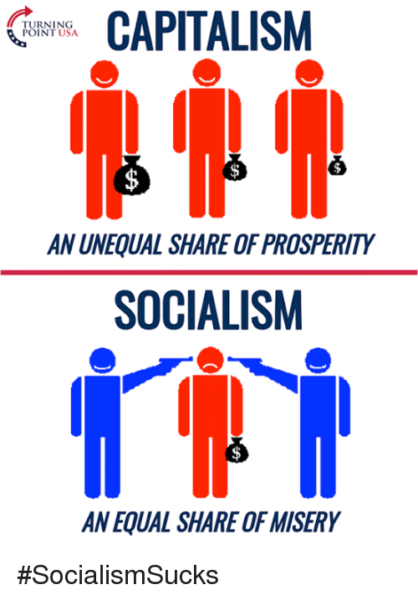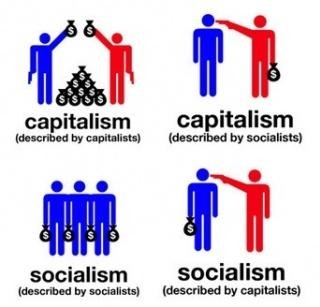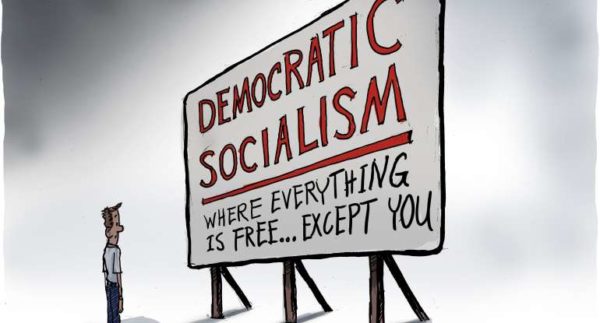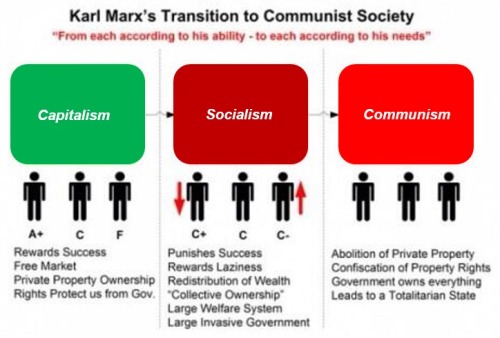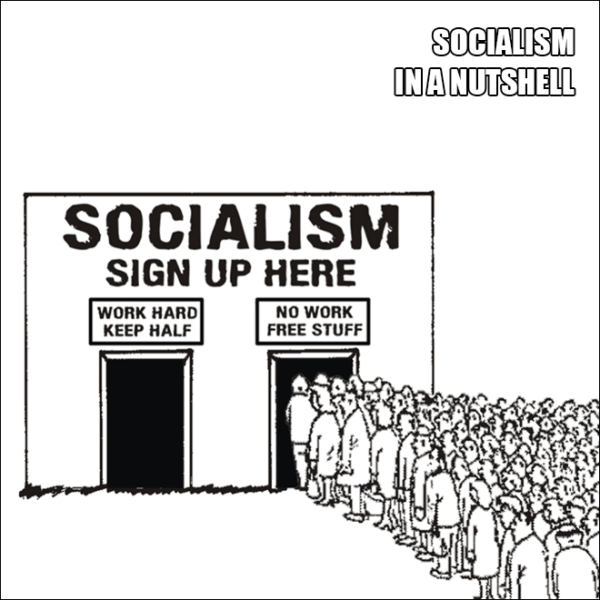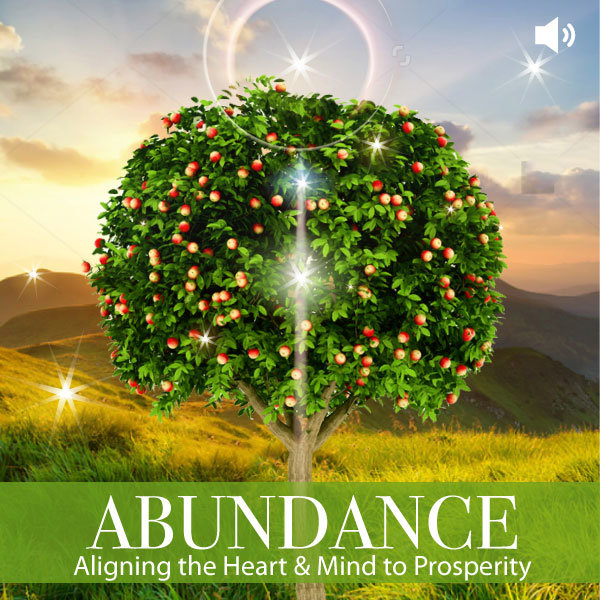I’m leaving the country early Wednesday and have decided to take a hiatus from the blog and YouTube channel until I get back the third week in September. I ask that you PLEASE refrain from sending me emails, Facebook private messages or any comments on Disqus or Facebook that require my attention, unless, of course, it’s an emergency. We will continue to have the radio show every Thursday night at 6 PM CT. On deck after my return, I will post the first of our panel YouTubes. The subject will be suicide and in attendance: Robin Williams, Erik, Sigmund Freud, Veronica, the Soul Happy girls, Tracy Zboril and Cara Hewett and me. We also have our interview with Natalee Holloway and Anthony Bourdain, videos about how to restore our faith in humanity, how to mend a broken heart and how to cure cancer, not necessarily in that order.
Please review some of the old videos if you can because however small, I do get some income from the ads, and that helps cover a part of my costs. Favorites seem to be the Bigfoot series, the alien series, Erik describes his own death, the sex and gender video, the Jesus and the Buddha interview. I might post one every day for you guys.
DON’T FORGET to book your spot at the Channeling Erik event at my house scheduled for October 19-21. If you’ve been stalling, please book ASAP so we can order the catering for the appropriate amount of food and beverages! Click HERE to register. Can’t wait to see you here!
Okay, enjoy this session on socialism courtesy of the channeling expertise of Jennifer Doran. The transcript follows!
Elisa: Hi Jennifer!
Jennifer: Hello, how are you?
Elisa: I’m doing fine, we just had a session together with Erik about losing Faith in humanity and it was just so awesome what you shared with us Erik, I love you.
Erik: I love you!
Elisa: But now because so many people have requested this we want to talk about Socialism. There seems to be a big movement towards Socialism, the millennials if you polled them many of them are in favor of having a Socialistic government, you have this Ocasio-Cortez who wants, Medicare for all, free housing, free I don’t know about free housing, free college and everything. You’ve got the Buddy Sanders movement, so I have questions mostly from other blog members, what’s going on Erik, why the move?
Erik: Ok, so the, ok, in a perfect world, it would work, so it is a very ideal belief. It’s not something that everybody’s tried yet, ok it should work on paper, on paper it should work, on paper it should work, unfortunately we don’t live in a perfect world, so it’s like, if it were a perfect world it would work. The people who have the push for it have those ideal values, like yes this is good, this is going to work but not everybody agrees and so then there’s corruption and all the greed and everything gets involved and it just doesn’t work.
Elisa: Yeah.
Erik: It just doesn’t work.
Elisa: No, those who are in charge of the socialist government are the ones that, like in Venezuela that are corrupt and they’re just starving over there it’s horrible, I hear that socialism has killed, I don’t know how many, several hundred million people. Is that because of the corruption?
Erik: Yeah.
Elisa: Or is it a flawed premise?
Erik: It’s both, it’s a flawed premise because there is corruption here, so it doesn’t work. If you could put it in a vacuum, if you had an absolutely controlled environment where there was no corruption it would work, that’s just not what we have here, or could ever have here because of human nature.
Elisa: Yeah, well it seems like, I believe in a blended economy really, capitalism, but there also has to be a safety net for people who can’t help themselves.
Erik: Yes.
Elisa: I feel a moral responsibility to help those people but the real question is should it be the government that helps or should it be us, churches, communities, neighbors etc, that help people, I’m just wondering, and I don’t know the answer to it, okay, if the government got out of the way in certain things, not everything obviously as far as helping others I’m wondering if that would make individuals and small communities and churches and charities step up to help each other or not, maybe not. It seems like “oh well the government will give them the care they need, oh well” you know that sort of thing.
Erik: It needs to be a combination of all of it, the systems that are in place now are not perfect either, there’s no perfect system, there is no perfect system, all the systems will be flawed because it’s like when you take from one to give to another, there is a ripple effect. So you might not see what.
Elisa: What the unintended consequences?
Erik: Yes. The unintended consequences of a new system or a new plan, you know the ideas and the plan are put in place to help and it might not be noticed right away what the flaws are going to be so, with the Socialism, it sounded really good and so when it got into effect it took some time to see the unintended consequences of it.
Jennifer: And so what he says about helping.
Erik: Yes the individual people, the churches but government can’t completely step out of helping, the government still has to be involved. It does not matter what system the government has in place there will be flaws.
Elisa: Yeah, I guess so, but again to me, I don’t know Erik if you believe, I believe in the Capitalist system that is blended not unfettered capitalism because there can be a lot of corruption in Capitalism too, but blended so we help those in need.
Erik: Yes and that creates the checks and balances.
Elisa: Oh yeah.
Erik: The blending creates the checks and balances but there’s always going to be corruption, there is always going to be corruption.
Elisa: Oh, corruption on the people who help and also the people who take.
Erik: Absolutely!
Elisa: From both sides. Humans! All right let me read a question from a blog member. Has a successful well functioning large scale and economically sustainable socialist system or structure ever existed, for any appreciable length of time in the history of Earth?
Erik: No. Not for any long length of time because there’s been corruption from day one.
Elisa: Yeah, will we ever see a successful Socialist system?
Erik: It depends on the snapshot of time that you’re looking at, so, not anything that will last for a very long time but in a snapshot in a short period of time yes.
Elisa: Okay, so.
Erik: It can appear that it is working well.
Elisa: Okay, can the country accurately be called Socialist if it is lead by a dictator or tyrant? Oh, that sounds like a dictatorship.
Erik: No.
Elisa: Okay, what is Erik’s opinion whether Socialism is the most expedient answer to bridge the divide between the rich and the poor and the US and this country?
Erik: No, it’s not.
Elisa: Not because it’s Socialist leaders get really rich.
Erik: Yes.
Elisa: And the populous gets really poor. Capitalism is the only thing that has brought people out of poverty, from poverty to lower middle class, to middle class to upper middle class, I mean it’s the only thing that provides a ladder, not unfettered Capitalism, not corrupt Capitalism.
Erik: No, no but, absolutely no, it’s not the quickest way.
Jennifer: And I will say he is telling me that, there still needs to be, you know, some people came here to struggle with money, so people truly did come here and part of what they came here to learn is to struggle with money, so there still needs to be that opportunity.
Elisa: Oh, so you don’t want to rob them of their spiritual contract is that what he’s saying?
Jennifer: Yes.
Elisa: That’s really hard to let somebody suffer like that though.
Erik: It’s not that you can’t help them, but to say that ok now you’re taken out of that, if they have written into their contract that they are going to, you know struggle financially throughout their life, well they need to be given the opportunity to do that, not that they need to starve and not that we can not help them but there are some people, most people have chosen a life where they have been impoverished. Most people will choose to do that at least once, because there is so much to learn from that experience.
Elisa: Yeah, tell me about that! I was going to ask you, what’s the value in having that kind of spiritual contract, it sounds like it sucks!
Erik: It does, but you know, sometimes what you learn there, often times believe it or not people will chose that when they’ve had a life with a lot of wealth, a path line with a great deal of wealth. Well they want to experience the other end of the spectrum, and so maybe you’ve chosen to come and learn about being humble or learn about struggle or you know whatever it is you’ve come to learn from that experience, that is a very powerful experience.
Elisa: I can see, you’re learning about abundance and you’re also learning about the illusion of scarcity right?
Erik: Yes, and also, learning to accept help, learning to accept help from others because a lot of times when you’re in this position you have to accept help from others and that is a very difficult thing for a lot of people to do, is to accept help.
Elisa: It is hard. It’s like people have trouble accepting love. It’s almost as if they’re not, they don’t feel like they are worthy or accepting monetary help is admitting that you’ve failed, or they’ll really believe, I don’t believe in failure, these are just stepping stones to success if you work it right.
Erik: Yes, but it’s not to let people starve and not help them, this kind of thing. You can still help, you can still absolutely help.
Elisa: Okay.
Jennifer: Yeah.
Elisa: Well, that’s good. All right, is the the taking away of individual property rights/ownership rights necessary to a Socialist system? Why or why not? So taking away their land I guess or any kind of property, I’m not really sure.
Erik: It’s not necessary, but that it would be part of it, but it is not necessary, it does not necessarily have to happen but it does.
Elisa: Okay, all right. So, what do you think about Universal Basic Income, like everybody gets a basic…
Jennifer: Living wage?
Elisa: Yeah. Living wage. Where would that money come from?
Erik: Yes, that’s what he was talking about before with the ripple effect, that creates ripple effect, it’s not easy to sustain that, so, yes everybody should be able to work a 40 hour a week job and provide for their family but that is not the reality.
Elisa: No, no.
Erik: It’s the ideal, and we don’t live in an ideal situation, we don’t live in an ideal world.
Elisa: Yeah.
Erik: So the ripple effects that would cause is to pay everybody a living wage would have so much more economic effect that we don’t even see.
Elisa: What would be the positive and what would be the negative?
Erik: Well, okay so the positive would be that the people who are working would make good money, and be able to provide for their families. The negatives would be the prices of stuff would go up, the people who actually had jobs would go down.
Elisa: Why because people would say well I’m getting a wage I don’t need to work.
Erik: Well because, in particular small business owners would have to cut back on their staff, so people who were working would have more work to do, and there would be less actual people to do the work, so layoffs and that kind of thing.
Elisa: Is that because the small business owners would have to be contributing a considerable amount of money to make this Universal Basic Income work?
Erik: Well, yeah, and to pay the wages of the people, it’s not just with the small businesses, the bigger corporations would have to do the same thing, they would pay the people who do work get more money but they would cut staff back. So, there is effects from it.
Elisa: Yeah, well I think that maybe, I’m not sure, the idea of this came about because you know we foresee a future of so many things being automated and run by robots and so there won’t be much need for human interaction in the production of goods and services, but I don’t know if that’s true because we’ll always have new technology and that new technology will require human beings and so on, because there was a horse and buggy taxi drivers and the all of a sudden the car comes and everybody thinks everybody’s going to be out of a job and it’s really not true blah blah blah.
Erik: Yeah, correct because all this technology and all this other stuff people have to make that stuff, people have to work on that stuff, you know, it’s not going to happen, and the reason why that idea was created was because truly in a perfect world that idea could work. So, the people who want to make it work have a very ideal vision of what the world is. It just creates, long term it creates a much more of a poverty issue, much more of a separation in classes.
Elisa: Oh God! That’s awful. I just feel like we can see this, on you know this microcosm, micro-experiments in each state, the people who are in New York get taxed so much, and people are fleeing to like Texas who has lower taxes, so I think that if we start going towards Socialism and have $32 Trillion worth of Medicare for all, people will leave, the rich will leave the country. There’ll be a huge wealth and brain drain, people, wealthy people have more freedom to move, unfortunately than people who are middle class or poor.
Erik: What happens is that the fate of the countries that say we can make it work, we’ll do it differently, look at the history, look at the people who have tried it, it doesn’t work, but the next group that wants to do it, thinks no we’ll do it right, we’ll do it the right way and it’s just the human factor in it will not let this work.
Elisa: That’s Ego, “I know the better way to do it”, it’s like look at California, I mean my sister lives there, they’re taxed so badly, so heavily but yet there’s so many homeless people, infrastructure is crumbling, the schools are falling apart, so I just don’t think you can throw money at problems all the time as a government. I don’t think the government is a very good steward of capital but that’s another question. Capitalism and Socialism differ and who is the steward of capital? And who take responsibility over citizens lives? With Socialism the government, like I will take care of you okay? I know better, cradle to grave, Capitalism puts a lot more responsibility on the individual. Can you comment on that? The pros and cons of that?
Erik: This actually works out better because often times the government is really very out of touch with the reality of the people. Whereas more in a Capitalist economy even the people who own the businesses and stuff they have employees and staff and they have a little bit better idea of the real world, whereas the government, it’s got to go through so much red tape and so many channel and the idea that the government starts with and what it ends up with, its…because it has to go through so many channels, whereas the capitalist stuff it does work a bit better because the people do have the ability to take more responsibility for themselves.
Elisa: Yeah. That gives you more dignity I would think. The politicians are like in an ivory tower sometimes, the elite politicians and professional political class, I mean I think they have elevators where they have a guy with white gloves that pushes the buttons for them. I don’t know if they still have that, I know, they just don’t know about human struggle as much as we do.
Erik: Yeah, they don’t, they truly don’t and they really do try to make it better, for the most part, generally speaking, there are the few that are you know power hungry and money hungry but the idea really for the government is to make it better but they are also not perfect, they are flawed just like every other person here.
Elisa: Yeah, we all are! Like a Bernie Sanders and Ocasio-Cortez, I think they have their heart in the right place, they really want to help the world, and give free college and all that stuff. So I know their hearts probably in the right place.
Erik: Yes.
Elisa: Why do millennials want Socialism so bad, I’ve never seen a generation so pro-socialism in my life.
Erik: Because it’s kind of the movement right now in politics, it’s kind of right there in their faces, so they are the government doesn’t work, there has to be change, so they for a good portion of them have just jumped on this bandwagon because it’s no our government doesn’t know what they’re doing, they don’t know what they’re talking about, we have to do this, we need to do this, so there’s that because it is a big thing now, right now in the world more so than it has before, before the millennial were this age but it’s also lack of experience for them.
Elisa: Yeah you know, I think that my generation has created a bunch of snowflakes, I mean we’ve been helicopter parents and we’ve coddled them etc., so we’ve protected them from the harsh realities of life and a lot of them have never had jobs. They don’t know really the value of the dollar, so…
Erik: It’s like this feeling of being entitled and really truly not having a concept of, ok, just for instance, if college is free for everybody well that money has to come from some place.
Elisa: Yeah, it’s never free.
Erik: It’s not free, you know, millennials are still young, they don’t quite have the concept of all of that yet, so it’s like yeah it sounds like a great idea, again in a perfect world it would be great!
Elisa: Yeah!
Erik: But we live in reality, here.
Elisa: Yeah, so it doesn’t work out, but it seems like I’ve heard a lot of millennials when they graduate and they really get down in the trenches and start working then all of sudden their not socialists anymore.
Erik: Yes.
Elisa: All right, to Venezuela, let me see this is a question, how can Venezuelans and other people from the U.S protect themselves from the ugly corruptions in Venezuela? So, what can Venezuelans do?
Erik: Okay so.
Elisa: Over throw the government!
Erik: This is going to take a great deal of time, to get themselves back out of this and there will be change there but it is so bad that it’s just going to take time.
Elisa: What a mess!
Erik: It’s going to take time and there will need to be intervention.
Elisa: What kind?
Erik: From other countries as far as help.
Elisa: Humanitarian efforts?
Erik: Yes. There will need to be help provided for them but the government will have to change.
Elisa: I think a lot of people running for any kind of office, leader of a country, whatever, pretty much buy votes, I will promise you this if you vote for me, and all of sudden those promises they cost money, you know and this case it certainly failed.
Erik: It is going to get better because it’s clearly gotten to be so bad that they will take steps and make efforts to correct this but it’s just going to take time, it’s not like a snap of a finger and it’s fixed.
Elisa: That’s awful. All right, what can we do here in the U.S to reform Venezuela, children and the young being use for sex purposes is ugly, what is going on in that country which we do not hear a whole lot? So, what do we do in the U.S to help Venezuela?
Jennifer: So, what I am hearing is, if you are going to provide help to Venezuela make sure that you look into the, whatever the, help me out here, the charity, that you’re giving money to or giving help to, make sure that you know where your money is going and where your help is going, where your aid is going. That’s a very good thing.
Erik: Because so many people, again corruption, where the aid is going, and what’s happening there is there’s corruption there too. Of course if you pray, you send out your love, you send out your positive thoughts, your energy, but this is something that, there has to be internal change for it, for it take effect there has to be internal change, and so anything that is done, if there’s not the internal change is…
Elisa: It ain’t going to work.
Erik: mmm hmm, nope
Elisa: But I thought that scarcity is an illusion, so why can’t there be socialism, because you know, there is infinite abundance of money right, so if scarcity is an illusion.
Erik: Again that would be in a perfect world because people will hoard.
Elisa: Oh.
Erik: So people will hoard their stuff and just as you’ve said people will leave the country, you know if we were to set up socialism, people would leave the country so now they have taken what they have and they’ve removed it from the country. So, yes scarcity is an illusion in a perfect world.
Elisa: Oh okay. Will America ever become fully socialist or are we just different, you know the talk about American Exceptionalism because we’re the only country, where the people that populated America came with a cause, seeking something better, seeking freedom on all sorts of different levels.
Erik: No, we will never become fully socialist.
Elisa: Okay.
Erik: Now little bits and pieces, little sections here and there but as a country no.
Elisa: Okay. Is it true that Socialism works until you run out of other people’s money? I think that’s what Margaret Thatcher said. But like we talked about then people leave the country, it’s like okay, I got paid 90% of my hard earned income.
Erik: Yeah basically it works for a short period of time.
Elisa: That’s what you said, yeah.
Erik: It appears to work for a short period of time, appears to work.
Elisa: Okay. Let’s see here’s another question, what should the government be responsible for versus the private sector? As far as helping people, can we rely on charities to lend a hand, well we talked about that but so what is the government’s responsibility compared to the private sector?
Erik: There’s responsibility in both areas, well the private sector, technically the private sector doesn’t really have to, but just for you know being human and being compassionate the private sector always will, there will always be that. So you can’t really dictate what they private sector should do, because they will take care of themselves and govern themselves. Even if some of it is done for tax breaks and that kind of stuff it still can help. And as far as the government goes there is responsibility to make sure the citizens don’t starve and that they don’t die because they can afford medication, the government does have responsibility there for their people.
Elisa: Absolutely, yeah. All right that’s clear. Let’s see just a couple more questions actually. Medicare for all, can we afford that?
Erik: The way the system is now, no, we can’t afford it for all long term, the structures would have to change, the money would have to come, more money would have to come from other places so more tax dollars, more whatever this is, so for a little bit it would but the whole structure would have to be changed, in order for it to work.
Elisa: Well I mean I can see Medicare for all having some positives because you can negotiate the cat scan bill, you know going down and pharmaceuticals but how can we make sure everybody is covered by insurance.
Erik: Actually, eventually we will get there, but it is a process, it is going take time and it’s going to take change. Change in the thought process but this is something that is possible and we can do, but it’s like, a whole overthrowing of the it works now will have to happen.
Elisa: It’s tough because, Canada, I have a personal experience with socialized medicine in Norway is horrible.
Erik: Yes, it has it’s, not all great and wonderful, there will be repercussions, there will be the downside of it. Everything has it’s positives and negatives.
Elisa: I know that Amazon and a couple other big corporations were talking about creating some sort of insurance just run by corporations the bigger corporations, I think the government is not very good at running things so maybe that will come to fruition. What about free college? You know people talking about investing, like you know it’s citizens and having citizens that are educated and have skills, is a positive thing, is an investment, but free college how can we afford that or can we?
Erik: Free college, not for all, we can’t afford free college for all, it just doesn’t work, it does not work, because, not everybody wants to go to college first of all.
Elisa: Yeah, trade schools are great!
Erik: Yeah so there still needs to be people doing that, and if college were free for everybody it loses value.
Elisa: They don’t go to class, it’s a rental basically.
Erik: Yeah, and so it’s not as, it would not be as effective as the system we have now although that also needs to be tweaked a bit because the cost has gotten out of hand, but free college for everybody who wants it, no it does not work.
Elisa: Yeah, it’s gotten out hand because of the government loans have hidden the consumer from the bill and yeah so. I think the first two years get your core classes done at a community college, it’s cheaper or go to trade school or what was I going to say? Online schools are popping up, that’s much cheaper!
Erik: Yes, yes and so there are other ways. The biggest thing to remember is no system is going to be perfect, they are all going to have their flaws and their all going to have their positives, all of them.
Elisa: Yeah and the good thing about flaw is we can learn from flaws.
Erik: Yeah.
Elisa: You can’t learn from perfection!
Erik: Exactly.
Elisa: All right last but not least any other pros or cons that you want to talk about in regards to socialism or capitalism, that we have not already covered, maybe we have covered it all.
Erik: With the capitalism, it does provide more opportunities for the citizens, it does, but there needs to be a balance there too, so a blended economy, all of any of the economic structures, if that was it, it just doesn’t work. The blend is what works the best.
Elisa: And you know the cons is you can have corruption in either of those models, socialism and capitalism.
Erik: Yes. Absolutely. Even when there’s the checks and balances there’s still going to be the corruption. Human nature.
Elisa: Ah, we just got through a session on losing faith in humanity. It was the perfect segway. All right thank you so much Erik, I love you, thank you Jennifer, you’re amazing!
Guys she’s amazing, I’m going to put her website psychicmediumjenniferdoran.com up here and you better buy your tickets their going fast for the October CE event coming up at my house. Anything else you want to share Jennifer.
Jennifer: Thank you and Erik says he loves you.
Elisa: All right thank you love you both.
Jennifer: Love you.
Elisa: Bye
Jennifer: Bye.
The following illustrations reveal how either extreme is harmful, and we need a blended economy instead of unfettered capitalism or socialism.
